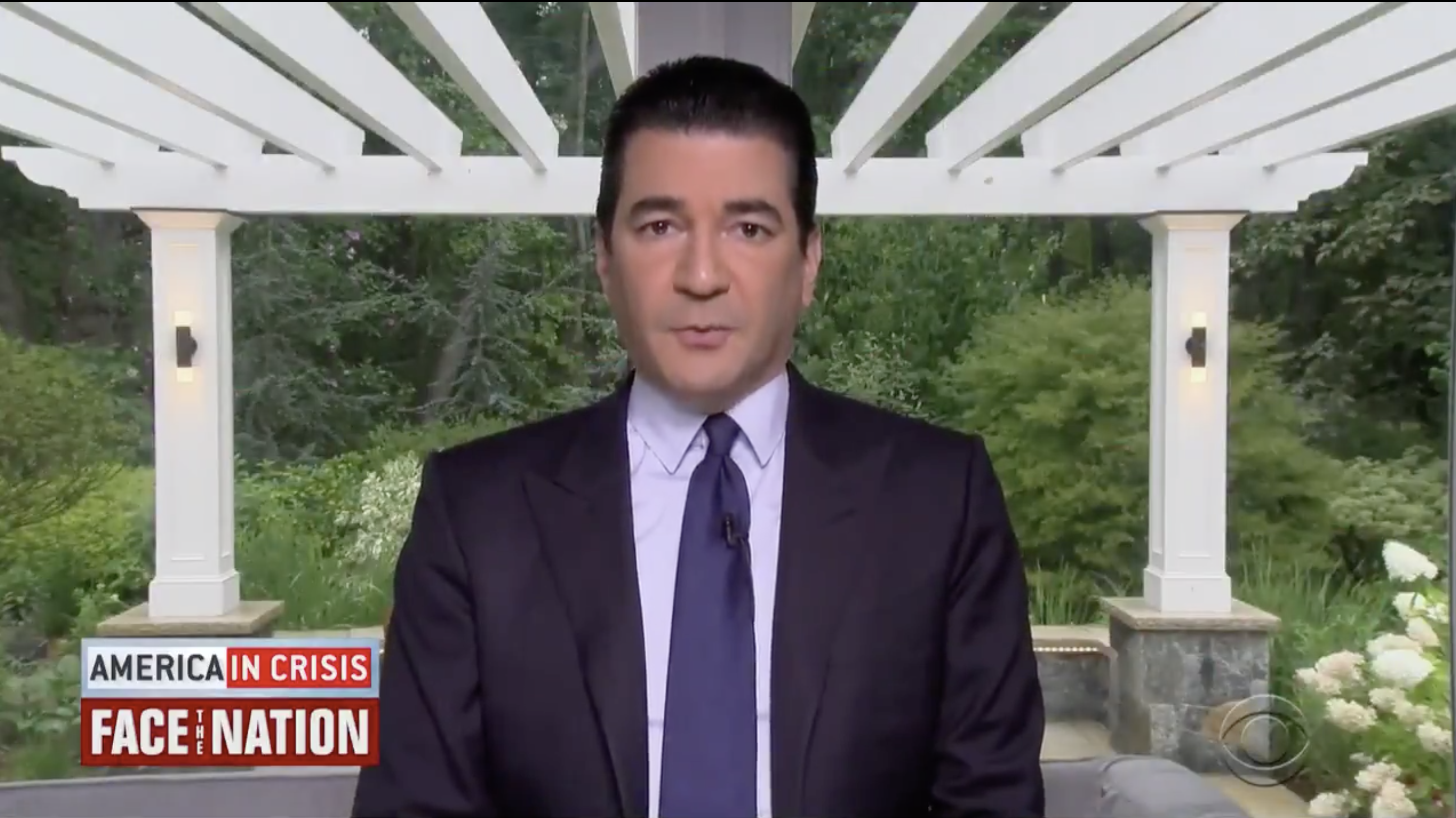Former FDA commissioner provides clarity on coronavirus immunity questions


A free daily email with the biggest news stories of the day – and the best features from TheWeek.com
You are now subscribed
Your newsletter sign-up was successful
Former Food and Drug Administration Scott Gottlieb clarified some important points about the coronavirus and potential immunity during the latest edition of CBS News' Face the Nation on Sunday.
The Centers for Disease Control and Prevention recently updated its guidance, which now says people who have recovered from COVID-19 don't need to quarantine or get tested for at least three months. Gottlieb said it's likely "sterile immunity" lasts even longer, probably varying by individual between "six to 12 months," but because the virus is new, the data needed to confirm the hypothesis doesn't exist yet.
Gottlieb was less optimistic about "herd immunity," which most scientists agree settles in at around a 60 percent infection rate within a community. He said he believes the U.S. is somewhere around 8 percent nationally, while places like New York, Florida, and Texas are almost certainly higher, albeit a long way off from the target number. Still, herd immunity is not an all or nothing concept, he suggested. In New York City, for instance the 20 percent infection rate shown in seroprevalence studies should still help slow transmission rates going forward.
The Week
Escape your echo chamber. Get the facts behind the news, plus analysis from multiple perspectives.

Sign up for The Week's Free Newsletters
From our morning news briefing to a weekly Good News Newsletter, get the best of The Week delivered directly to your inbox.
From our morning news briefing to a weekly Good News Newsletter, get the best of The Week delivered directly to your inbox.
Lastly, Gottlieb spoke briefly about the speculation surrounding T-cell immunity, which is separate from the more frequently-discussed antibodies. Research has suggested people may have residual protection from prior exposure to other coronaviruses that cause the common cold. While it's too early to prove that for sure, Gottlieb said, if it is the case, T-cells will probably help fight off COVID-19, the disease, but won't prevent a coronavirus infection completely. That's good news for individual health, but would still pose transmission risks. Tim O'Donnell
A free daily email with the biggest news stories of the day – and the best features from TheWeek.com
Tim is a staff writer at The Week and has contributed to Bedford and Bowery and The New York Transatlantic. He is a graduate of Occidental College and NYU's journalism school. Tim enjoys writing about baseball, Europe, and extinct megafauna. He lives in New York City.
-
 Palantir's growing influence in the British state
Palantir's growing influence in the British stateThe Explainer Despite winning a £240m MoD contract, the tech company’s links to Peter Mandelson and the UK’s over-reliance on US tech have caused widespread concern
-
 Quiz of The Week: 7 – 13 February
Quiz of The Week: 7 – 13 FebruaryQuiz Have you been paying attention to The Week’s news?
-
 Nordic combined: the Winter Olympics sport that bars women
Nordic combined: the Winter Olympics sport that bars womenIn The Spotlight Female athletes excluded from participation in demanding double-discipline events at Milano-Cortina
-
 Nobody seems surprised Wagner's Prigozhin died under suspicious circumstances
Nobody seems surprised Wagner's Prigozhin died under suspicious circumstancesSpeed Read
-
 Western mountain climbers allegedly left Pakistani porter to die on K2
Western mountain climbers allegedly left Pakistani porter to die on K2Speed Read
-
 'Circular saw blades' divide controversial Rio Grande buoys installed by Texas governor
'Circular saw blades' divide controversial Rio Grande buoys installed by Texas governorSpeed Read
-
 Los Angeles city workers stage 1-day walkout over labor conditions
Los Angeles city workers stage 1-day walkout over labor conditionsSpeed Read
-
 Mega Millions jackpot climbs to an estimated $1.55 billion
Mega Millions jackpot climbs to an estimated $1.55 billionSpeed Read
-
 Bangladesh dealing with worst dengue fever outbreak on record
Bangladesh dealing with worst dengue fever outbreak on recordSpeed Read
-
 Glacial outburst flooding in Juneau destroys homes
Glacial outburst flooding in Juneau destroys homesSpeed Read
-
 Scotland seeking 'monster hunters' to search for fabled Loch Ness creature
Scotland seeking 'monster hunters' to search for fabled Loch Ness creatureSpeed Read
